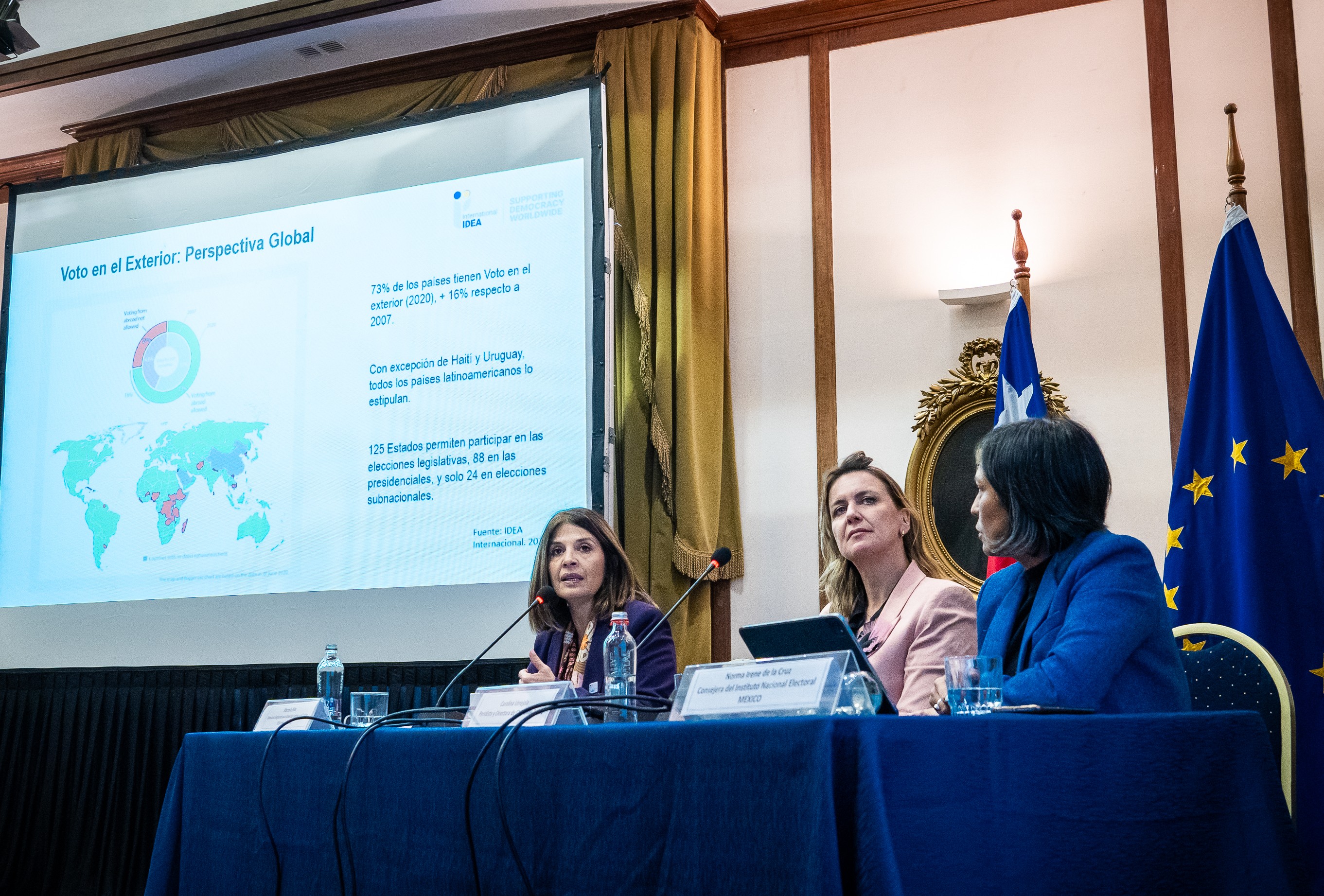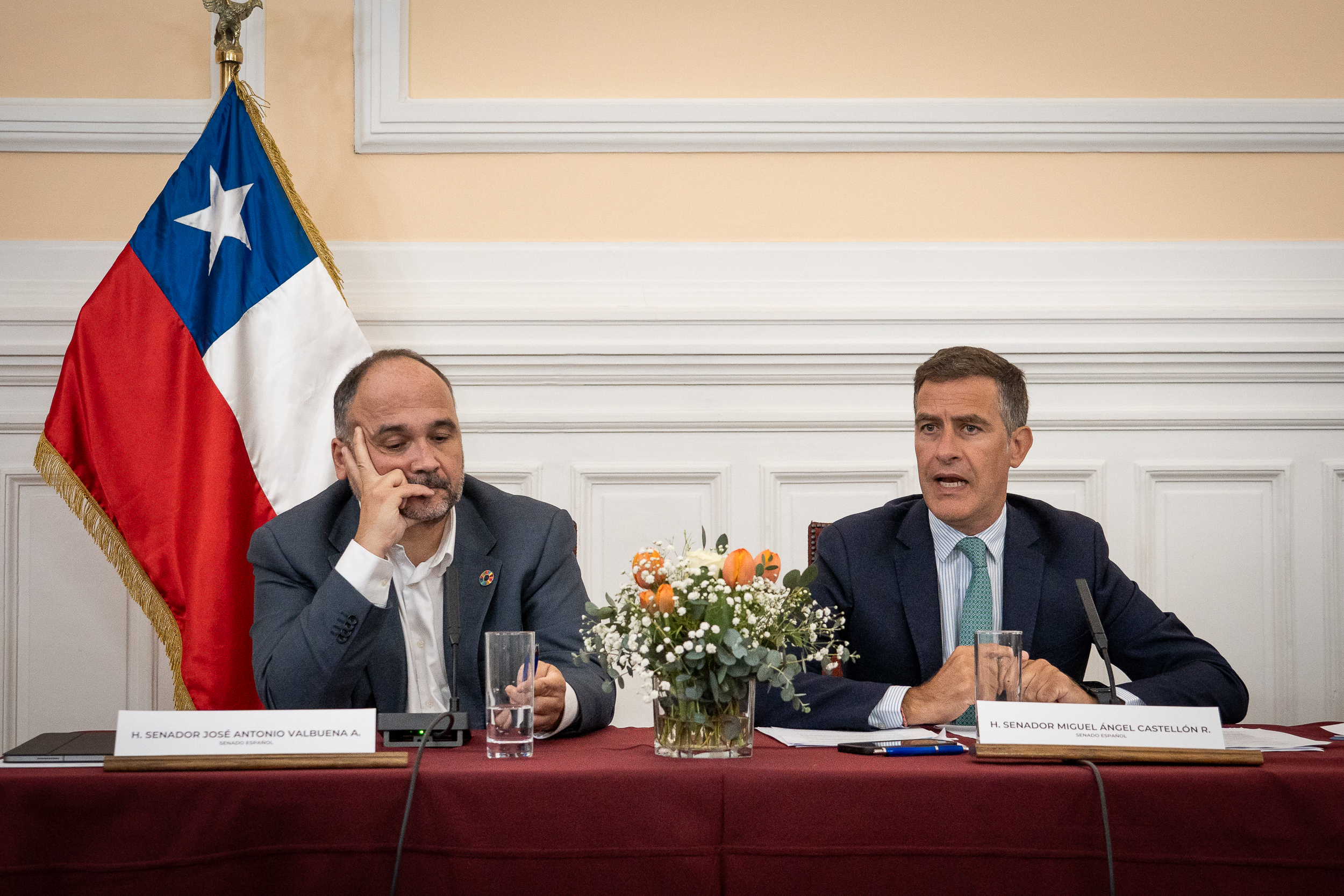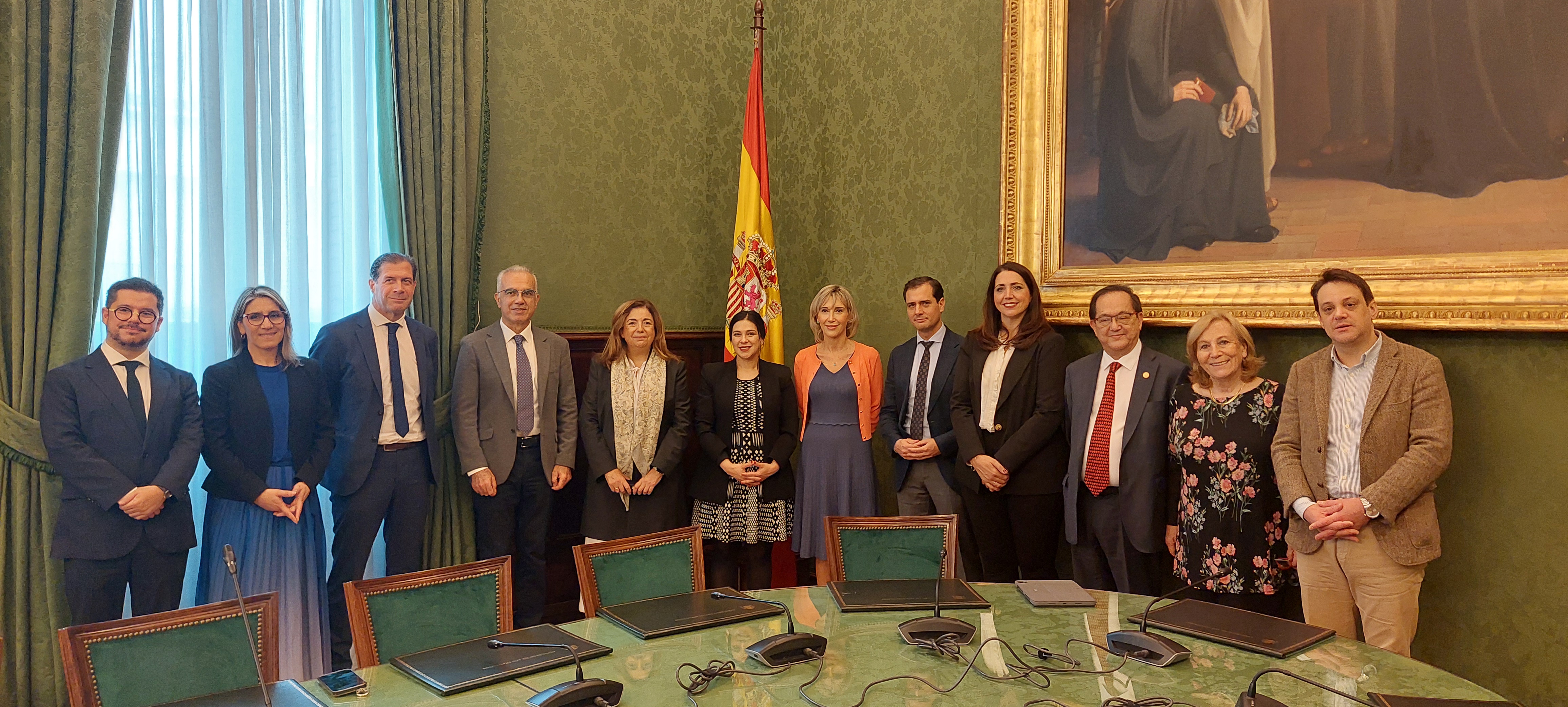Democratic accountability for public service delivery is an important dimension of the post-2015 development agenda.
Búsqueda
Region
Country
Type
“The universal nature of democracy as something which people all over the world aspire to is clear from citizens’ own actions and demands for democracy.”
Some 32,975,158 registered electors voted at 89,391 polling stations on 25 May in Colombia to elect the President and Vicepresident for the 2014-18 term.
El pasado 25 de mayo se llevaron a cabo las elecciones presidenciales en Colombia para la elección de Presidente y Vice Presidente, correspondientes al periodo 2014-2018. Estaban convocados 32.975.158 de electores inscritos, distribuidos en 89.391 mesas de votación.
At a time when political party dialogue is considered the only way forward in many polarized contexts within the Arab world, International IDEA is hosting a workshop on 24–25 June on the role of political party dialogue in democratic consolidation to stimulate discussion and share best practice.
Disclaimer: Views expressed in this commentary are those of the staff member. This commentary is independent of specific national or political interests. Views expressed do not necessarily represent the institutional position of International IDEA, its Board of Advisers or its Council of Member States.
Politicians tied to a set of policies provide people with actual choices.
They attract like-minded activists, campaign in more focused ways, and build an attractive party label. Last but not least, they are more likely to succeed in public office.
Political parties in many countries are struggling to shift from personality-based or clientelistic-focused approaches—to more programme-based strategies as they reach out to voters.
What role does money play in European elections, and how is it regulated? Such questions need to be addressed to ensure the integrity of Europe's democratic processes, says IDEA’s Samuel Jones in an article published by openDemocracy on 20 May 2014.
By Shailaja Chandra, a former Secretary to the Government of India and former Chief Secretary, Delhi. The views expressed in this analysis are hers and should in no way be construed to represent those of International IDEA, its Board and/or Council members.
2.5 million Panamanians put an end to the ruling party’s attempt to remain in officeon 4 May 2014 and reasserted their faith in democracy and in alternation, when they cast their votes to elect the President, a Vice-President, 71 deputies, and the officials for many local and regional positions.
Los panameños pusieron fin a los intentos continuistas del partido en el poder y, el pasado 4 de mayo, reafirmaron su característica fe en la democracia y en la alternancia, cuando 2.5 millones acudieron a las urnas a elegir Presidente, Vicepresidente, 71 diputados y numerosos cargos locales y regionales.
On 15 May 2014, International IDEA hosted an event in New York entitled Advancing Genuine Political Participation: Strategies for Overcoming Exclusion for Marginalized Groups.
A political party that embraces a clear set of policies or programme to reach out to citizens is more likely to listen, reflect and address citizens’ views. How does such a programmatic party come about?
On 9 May 2014, International IDEA’s Permanent Observer to the UN, Massimo Tommasoli, addressed a group of Permanent Representatives and Heads of Delegations to the Open Working Group on Sustainable Development Goals (OWG/SDGs) on the need for promoting inclusive, accountable and effective institutions in the post-2015 Development Agenda.
Second round, run off ballots (ballotage), are currently the trend in Latin America: of the seven presidential elections expected this year, a second round is provided for legally in six countries (Panama is the sole exception).
El balotaje está de moda en América Latina: de las siete elecciones presidenciales previstas para este año, la segunda vuelta está reglamentada en seis de los siete países (la única excepción es Panamá).
International parliamentary institutions (IPIs) are seen as a valid response to the democratic challenges posed by globalization and regional integration.
Since August 2013, IDEA has supported political parties in Kenya to develop their strategic plans using the Institute’s Strategic Planning Tool for Political Parties. This initial phase has now come to an end (April 2014) and the next step will be the implementation of these plans.
In April 2014, Peru expanded the ‘indigenous quota’ which now provides that at least 15 per cent of candidates on electoral lists for regional and provincial elections in certain areas of the country must be representatives of the original peoples. In the lead up to the decision, International IDEA worked jointly on this issue with the Ministry of Culture and the National Elections Board (Jurado Nacional de Elecciones, JNE).
“Media, civil society and electoral observers” was one of the topics addressed in a 5-day conference, organized by the Electoral Commission (EC) and United Nations Development Programme (UNDP) Joint Task Force on Electoral Assistance, held at the Dead Sea in Jordan, on 7–11 April 2014.


